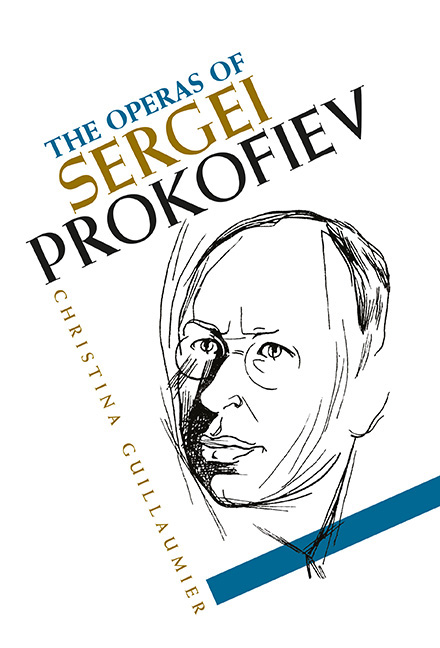Book contents
- Frontmatter
- Dedication
- Contents
- List of Illustrations
- Acknowledgements
- Note on transliteration, abbreviations and sources
- Introduction: Prokofiev and Opera
- 1 Early Operatic Experiments and Maddalena
- 2 Between Opera and Theatre: Radicalisation of Style in The Gambler
- 3 A Successful Enterprise: Love for Three Oranges
- 4 The Devil Within: Theatre and Spectacle in The Fiery Angel
- 5 Towards a Soviet Operatic Style: Semyon Kotko
- 6 Betrothal in a Monastery and the Retreat from Ideology
- 7 War and Peace: The Prokofievan Operatic Ideal?
- 8 Dramaturgical Re-evaluation in The Story of a Real Man
- Epilogue
- Synopses
- Bibliography
- Index
5 - Towards a Soviet Operatic Style: Semyon Kotko
Published online by Cambridge University Press: 28 April 2020
- Frontmatter
- Dedication
- Contents
- List of Illustrations
- Acknowledgements
- Note on transliteration, abbreviations and sources
- Introduction: Prokofiev and Opera
- 1 Early Operatic Experiments and Maddalena
- 2 Between Opera and Theatre: Radicalisation of Style in The Gambler
- 3 A Successful Enterprise: Love for Three Oranges
- 4 The Devil Within: Theatre and Spectacle in The Fiery Angel
- 5 Towards a Soviet Operatic Style: Semyon Kotko
- 6 Betrothal in a Monastery and the Retreat from Ideology
- 7 War and Peace: The Prokofievan Operatic Ideal?
- 8 Dramaturgical Re-evaluation in The Story of a Real Man
- Epilogue
- Synopses
- Bibliography
- Index
Summary
Although Prokofiev continued to work on The Fiery Angel into the early 1930s, for various reasons his heart was not truly in it. The artistic conditions he was exposed to in the West did not live up to his expectations, and his successful visit between January and March 1927 to the Soviet Union brought back the possibility of returning to his homeland. Commentators have speculated about the reasons for Prokofiev's return. There was, and remains, little consensus about it. It is certainly true that Prokofiev was well received by Soviet Moscow and subsequently beguiled by it. Hakobian argues that ‘Prokofiev had no impure political or other ambitions. Being in the prime of life, he was interested principally in composing, and in resolving some purely artistic problems.’ This indeed is the key to the composer's return – he deeply desired to compose what he wanted on his own terms; he also felt that the reception of his works in the West was not as warm as he would have liked. Commissions and opportunities to perform his works in the West were gradually dwindling and, more importantly, he felt increasingly out of synch in musical terms. After Diaghilev's passing, his work ties to Paris seemed less compelling. The greatest draw for him in Russia was contemporary explorations and experimentation in the realm of theatre, which provided him with a stream of intriguing commissions on his return. This period was thus both challenging and musically fruitful for Prokofiev, despite the cliched histories that question his music’s supposedly dubious quality.
Prokofiev soon realised that he would need to carve a new identity for himself, one as far as possible from that of a returned emigre. In doing so, he could tap into the continued if unpublicised popularity of his work in the public consciousness of early 1930s Soviet Russia. According to Hakobian, the public continued to listen to Prokofiev’s music, which to them epitomised a physical and positive form of modernism; his ‘art was commonly regarded as prevalently robust, “sportive”, healthier than that of Scriabin and his followers, more “democratic” than that of Stravinsky. In the author of the Scythian Suite, Soviet audiences saw the very embodiment of modernity, the most suitable paragon for the musical art which had to replace the post-Skryabin decadence.’
- Type
- Chapter
- Information
- The Operas of Sergei Prokofiev , pp. 119 - 148Publisher: Boydell & BrewerPrint publication year: 2020



